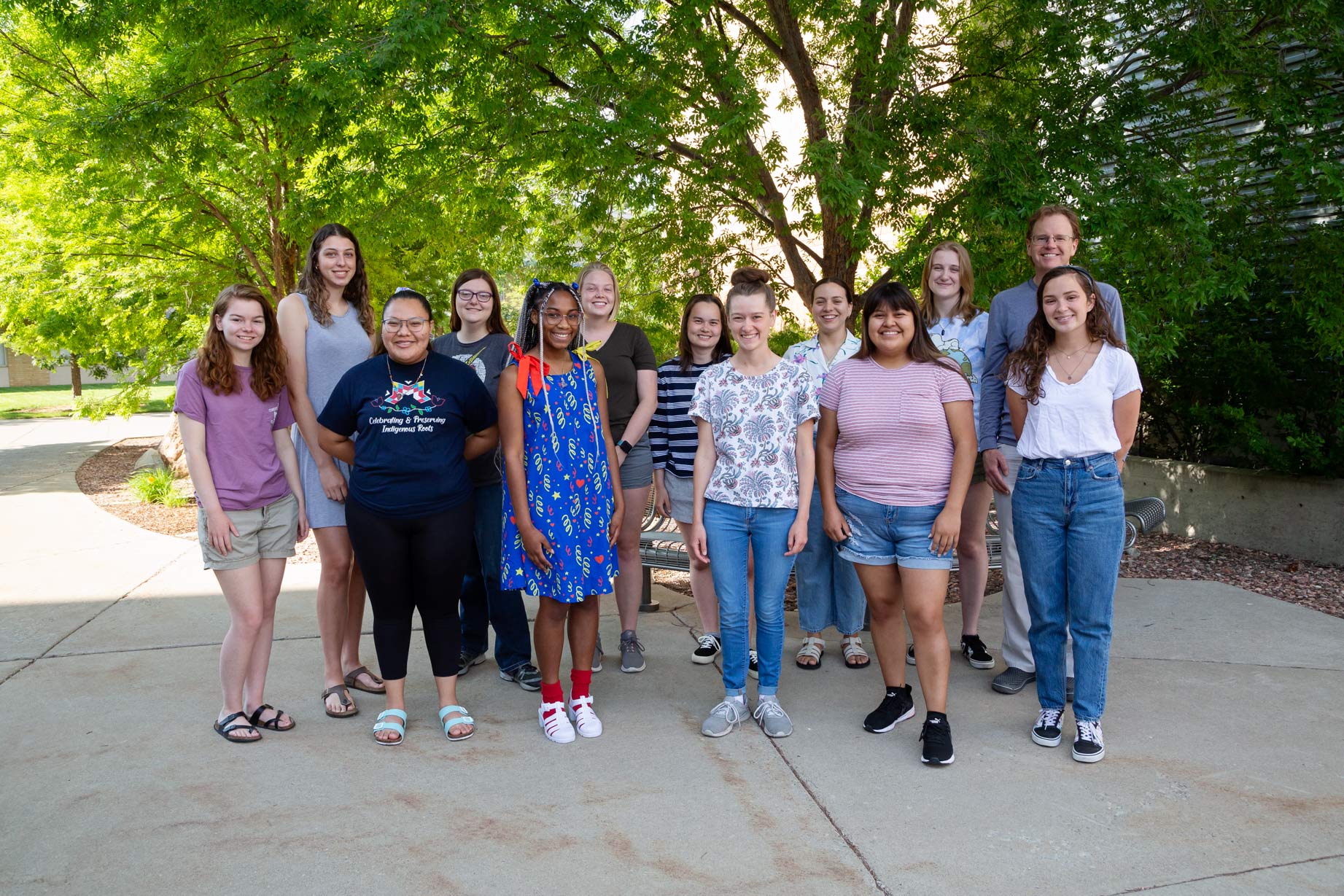Engineering Professor Establishes Multidisciplinary Research Program, Welcomes All-Women Cohort
News Release — June 23, 2021 — Not every undergrad who wants to do research has the opportunity. And not every college offers programs that align with student interests. A Utah State University professor is hoping to fill that gap with a multidisciplinary summer research program for undergrads from across the country.

Professor David Britt’s REU site brought together 12 STEM majors from across the country to participate in a 10-week intensive research program.
Biological engineering professor David Britt has received $370,000 from the National Science Foundation to establish a Research Experiences for Undergraduates, or REU, site for students interested in studying plant physiology, soil health, and plant microbiome. The program funds a 10-week intensive research program, which includes a generous stipend, and housing and food accommodations for participants.
This is the first of a three-year program, which Britt hopes will produce 30 participants, mainly those from underrepresented groups or those who have limited opportunities at their home institutions. This year’s all-women cohort includes 12 students, hailing from 10 states and Puerto Rico.
STEM for Plant Health, the name of the REU site, offers students the option to work in one of six different labs housed in three colleges across campus — Engineering, Agriculture, and Science. Two of these labs are housed in the Biological Engineering Department, led by Professors Britt and Jixun Zhan.
Kendall Ewert is a biotechnology major from Kent State University in Ohio and one of two REU students in Zhan’s lab. Under Zhan’s direction, she is using metabolic engineering techniques to have E coli produce curcumin, an anti-cancer and anti-inflammatory compound native to certain plant roots. The COVID-19 pandemic has made it difficult for Ewert to get hands-on experience, but her time at USU has helped her see a potential career in research – as well as some painful truths about it.
“I've learned that the research process takes a lot of tries. We do experiments, and it doesn't work. And we do it again, and it doesn't work,” said Ewert. “I asked my mentor if we were doing something wrong, and he said, ‘No, it just takes a lot of tries.’ So I've just learned a lot of patience and to not criticize myself every time something goes wrong. It's just part of the research process.”
Erin Nowak is a biology major from Salem College, a small liberal arts college in Winston-Salem, North Carolina. Her initial interest in nanoparticle research drew her to Britt’s lab, where she investigates how plants interact with beneficial microbes. Future work will look at how engineered nanoparticles may shift the microbe-plant interaction.
“I want to go to grad school to get my doctorate, and I’m leaning towards doing bioengineering, so this was good experience both in research and learning more about grad school,” said Nowak. “It's been amazing. It's given me a lot of opportunities, I met really cool people, and I learned more than I would have in any class.”
###
Contact: Dr. David Britt, david.britt@usu.edu, 435-797-2158
Writer: Anessa Pennington, anessa.pennington@usu.edu, 435-797-7512

